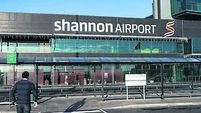West African troops and food aid eventually arrive to beleaguered Monrovia citizens
The arrival of the first troops, although still unseen in the city, brought a dramatic easing of two week's of gunbattles in the city.
With guns stilled, three rebels at the fiercely contested New Bridge briefly crossed over from the insurgent-held port, shaking hands with nonplussed government fighters before returning to the other side.














